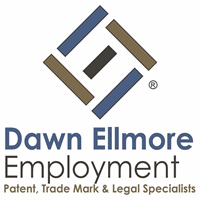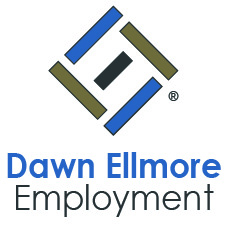Luke Rehbein on Booking.com versus the USPTO reaches the Supreme Court
How generic can a domain name registration be? This is the issue playing out in the US trade mark sector right now, using a case involving Booking.com. The US Supreme Court has agreed to consider whether businesses should be able to obtain trade mark protection at a federal level for domain names that centre on a common word.
Supreme Court agrees to hear the federal appeal against Booking.com
On 8 November 2019, the US Supreme Court agreed to consider the bid to stop the hotel reservation website from trade marking the website’s name. The hotel reservation company Booking.com is a subsidiary of Booking Holdings Inc. The bid to stop the trade mark is by a federal agency that contends the domain name ‘booking.com’ is too generic to warrant legal trade mark protection.
The US Patent and Trademark Office (USPTO) is appealing to the Supreme Court against a previous lower court decision. This earlier ruling by the lesser court allowed the trade mark protection because the addition of ‘.com’ negates the genericism of the word ‘booking’. Therefore, with the addition of .com, this court decided that Booking.com should be eligible for legal protection with a trade mark.
Booking.com Trade mark applications initially rejected
Booking.com is an exclusively online hotel reservation system and is based in Amsterdam. The company started using the name ‘Booking.com’ globally back in 2006. In 2011 and 2012, Booking.com filed a number of trade mark applications.
A USPTO tribunal rejected these trade mark applications in 2016. Its decision was based on a formal judgement that ‘Booking.com’ refers to the generic action of booking hotels and transportation and therefore can’t be exclusively used through a federal trade mark.
US law states that only those terms considered to distinguish a specific service or product from others available to consumers can be trade marked. The USPTO cited the fact that federal courts have rejected all kinds of similar trade mark applications for names such as mattress.com, lawyers.com and hotels.com.
4th US Circuit Court backs company on appeal
Following this ruling, booking.com launched an official appeal. During the appeal the company cited a survey showing evidence that customers identify Booking.com as a brand name. And in February 2019, the 4th US Circuit Court of Appeals, based in Richmond, Virginia, accepted this. The Court ruled that Booking.com is understood by consumers to refer specifically to a business rather than a generic action.
The USPTO argues to the Supreme Court that simply adding ‘.com’ to a generic word does not make it distinctive enough to warrant trade mark protection. The company is asking that the Supreme Court allows the 4th Circuit judgement to remain, saying that Booking.com is “one of the best-known travel and accommodation services in the country.”
This case will have wide-ranging implications for other businesses on whether trade mark protection should be granted to those that use generic words as domain names.
Why is federal trade mark registration so important?
Federal trade mark registration gives the mark owner extra protection in addition to the rights they automatically hold under state law. Registration can also give the company exclusive rights in any part of the US where the name or image isn’t already in use. This can help the trade mark owner put competitors on notice not to use the mark as it’s legally protected, and help them win disputes in court.
The US Solicitor General argues in court papers to the Supreme Court that the judgement made by the 4th US Circuit “threatens to cause serious and immediate anticompetitive harms.”
For its part, the company argues that consumers clearly identify Booking.com as a trustworthy online reservation brand. The company further asserts that any rejection of its applications for federal registration will therefore mislead consumers. A representative says in court papers: “Denying registration will only allow unscrupulous competitors to prey on its millions of loyal consumers by falsely advertising as ‘Booking.com’.”
The company maintains that there is substantial risk of competitors hoodwinking consumers by deceitful use of Booking.com due to its success and popularity.
Supreme Court will rule in June 2020
The USPTO says that, in the case of USPTO v Booking.com 19-46, if registration is granted to the company, then Booking.com could use it to pursue litigation. Its argument states that Booking.com could feasibly sue competitors for using different domain names, such as hotelbooking.com or roomsbooking.com, which would give the company an unfair advantage.
Booking.com had no choice but to appeal against the threat to remove its registration, and this case may set a precedent in trade mark law. The case hearing is set for Spring 2020 and the Supreme Court will issue its final ruling by June 2020.
Luke Rehbein is an Associate Director at Dawn Ellmore Employment and a qualified CertRP recruitment professional. Luke can help place individuals at all levels in Patent, Trade Mark and Legal Attorney and Solicitor Staff roles in the UK and worldwide. Contact Luke Rehbein through LinkedIn here.






